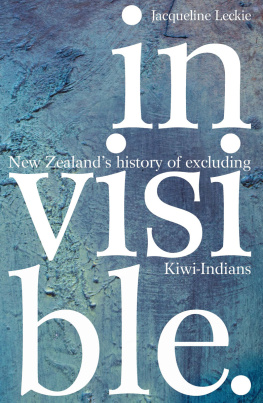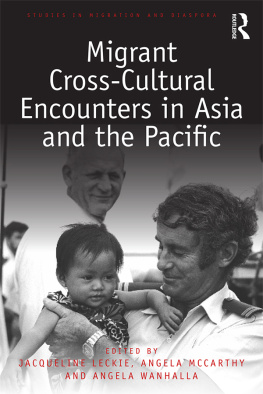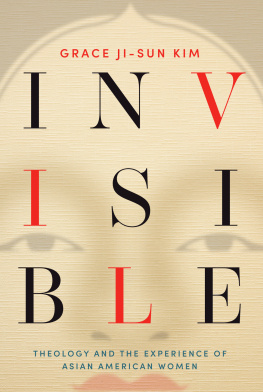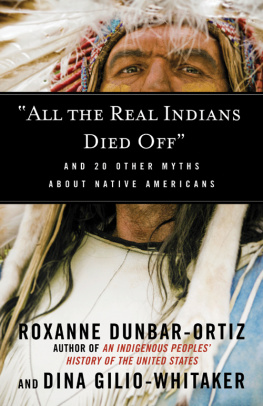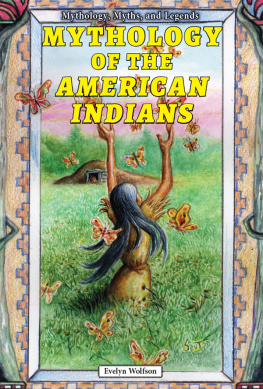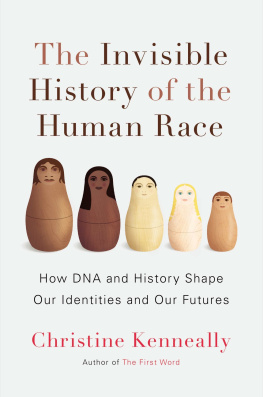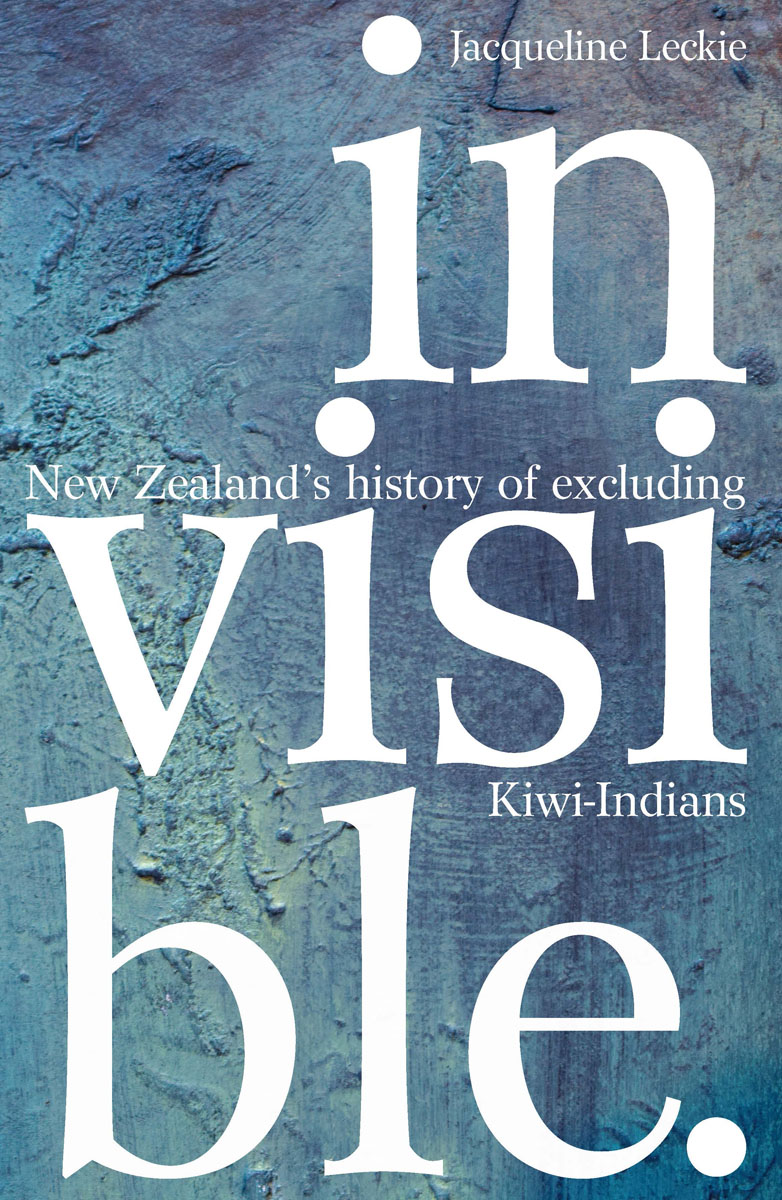


Contents.
Forewords
I ts really important to publish Invisible: New Zealands history of excluding Kiwi-Indians at a time when Aotearoa is grappling with its history. Our schools have been mandated to teach the spectrum of New Zealand history from 2020, and the publication of this book will add to a rich tapestry, filling the gap in our collective knowledge of the experiences of Indian people in Aotearoa New Zealand.
Indian history in this land is complex and has been captured in great detail by Dr Leckie, from the time of Cook in 1769 to the present. Interactions between Indian individuals, families and communities with broader society have paralleled colonial history. There are the familiar patterns of exclusion and exploitation we see in so many spheres of our society, whether at the picture theatre in Pukekohe which has earned a place in New Zealand history for racial exclusion, and for segregating the races to immigration policies that officially welcomed all members of the empire, while quietly emulating the White Australia policy behind the scenes.
Im impressed with the way that Dr Leckie has uncovered hundreds of case studies of the lives of Indian people in New Zealand. The way they have adapted, prospered, pushed back and gone about building their lives and communities in a strange land is inspiring.
I thank the New Zealand Indian Central Association for the invitation to introduce and to mihi to Invisible. After the Covid-19 lockdown, the Human Rights Commission launched the Voice of Racism campaign, which has, in a small way, captured the experiences of Indian New Zealanders. Being asked but where are you are really from? is an example of repetitive questioning in the book that we captured in the campaign. It is my sincere hope that Invisible takes pride of place on the nations bookshelves and in schools. I appreciate the role it will have in educating our people about racism and the real impacts it has on the lives of Indian New Zealanders. It should motivate us all to stand up to racism, the one aspect of New Zealand history we must banish to the past. In Aotearoa, diversity is our strength.
Meng Foon
Race Relations Commissioner
May 2021
I nvisible: New Zealands history of excluding Kiwi-Indians is an exciting and galvanising book by Dr Jacqueline Leckie. It introduces readers to the hardships faced by Indians upon their arrival in Aotearoa New Zealand because of the colour of their skin and the way they spoke.
This book was instigated by the presentation of a Grievance Report by Naginbhai G. Patel of Wellington to the 79th NZICA Annual General Meeting, sixteen years ago, on 9 April 2005. It is from the revelations presented in that report that Invisible has been developed and published.
Dr Leckie has brought to life the experiences of early Indian settlers and the challenges they faced as people of a different ethnic background to the majority of new migrants. Although the first signs of racism were directed to new ethnic groups very early in New Zealands history, racism against Indians and Chinese carried on for a number of years. It took the will of some determined early settlers to recognise this and make a stand by raising issues of discrimination with government authorities. However, positive outcomes from this would take many years.
Racism is unfortunately still amongst us, and Invisible also describes the experiences of Indian communities through to today. This racism is not only directed against the first ethnic settlers of non-European descent, such as Indians and Chinese, but now it is also directed towards other ethnic groups.
I would like to thank the various NZICA members, including a special mention to NZICA General Secretary Manisha Morar, for assisting Dr Leckie by providing information and photographs.
This invaluable work informs readers about an aspect of our history that is often hidden, provides a glimpse of the difficult experiences of early settlers and explores what ethnic racism is like in Aotearoa New Zealand today.
Paul Patel QSM
President New Zealand Indian Central Association Inc
May 2021

one.
The Indian Diaspora and Exclusion
O n 15 March 2019 a white terrorist stormed into the Al Noor mosque in Christchurch and opened fire with a deadly arsenal of weapons, just as around 350 Muslims were about to begin Friday prayers. He then attacked worshippers at the citys Linwood Islamic Centre. A total of 51 people were killed and 49 injured. Before committing these atrocities, the attacker had posted his intentions online, along with a venomous manifesto. He then live-streamed the first massacre.
Kiwis and people worldwide reacted to the news with a range of emotions from shock and anger to empathy and love for the victims. Yet the outpouring of grief was overlaid by a collective denial that such evil lurked within the nation. True, the murderer was an Australian immigrant, but how could he commit such terrorism in peaceful and tolerant Aotearoa? Indeed, Prime Minister Jacinda Ardern declared that the person who committed the racist violence is not us. When she said that Muslims have chosen to make New Zealand their home, and it is their home. They are us, she could have been referring to any immigrants, including Indians. Arderns condemnation of the unprecedented actions of 15 March may have been true in spirit, but that horror pointed to the presence of white extremism and tacit or unintentional support within Aotearoa. Within six months of the killings, the vice-chancellor of the University of Auckland allowed the distribution of white supremacist literature on campus on the grounds of freedom of speech.
The Christchurch massacre raised questions about what it means to belong to an ethnic and/or religious minority in a country that has experienced a very long history of underlying prejudice and racism. After all, New Zealand is founded upon colonialism, predicated by white racial domination. The concept of the nation and nationalism which assumes a singular shared identity within it and denies difference outside its borders
In the aftermath of the Christchurch massacre, clinical psychologist Waikaremoana Waitoki asked, Why did our country have to hit rock bottom and lose 50
But what of the experiences of non-European migrants, specifically Indians and their descendants, in Aotearoa? Both within the negative history of colonisation and racism and, more positively, within the scope of the Treaty and biculturalism?
This book adds to the story of migration and belonging from the perspective of Indians in Aotearoa New Zealand. It seeks to uncover and to do the same with contemporary racism directed at Indians.
This book is not offered as a solution to persistent racism and discrimination. It does not address exclusion within Kiwi-Indian communities that may be based on caste, religion, status and gender, as well as economic exploitation. The book does not explain 15 March 2019. Rather, it hopes to shed some light on how that tragedy could happen in a nation where the extreme outcome of racism is not us. Aotearoa New Zealands record of the exclusion of Kiwi-Indians is a legacy that challenges the nations view of itself as inclusive and open.
Next page
